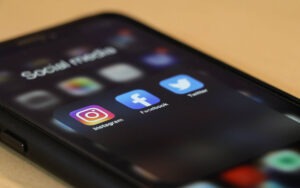
April 10, 2017; New Hampshire Public Radio
A number of experiments have been run on the use of digital communication to affect political processes. We are not sure that this one works as-is, but it is worth a further look. Citizens Count NH/Live Free or Die Alliance (LFDA) runs a campaign called “Citizen Voices” that collects comments from N.H. residents via Facebook, then summarizes them and delivers reports to state lawmakers. Sometimes, they’ll present the findings in a hearing or deliver the report to pertinent special interest groups or departments. They don’t take sides on any issues and they don’t support or denounce candidates; their goal is to bring the voices of the people to the government without the complications inspired by lobbyist groups or campaign supporters.
LFDA also provides information about candidates in state and national races, which they glean from news articles, books and other published material, and direct interviews with the candidates. Anna Brown, a staff member at LFDA, said that the organization has good relationships with legislators, who will occasionally ask the organization to help them gather feedback about a proposal.
Anyone can start a discussion or ask a question on LFDA’s platform; sometimes the organization posts a question or a proposal, and sometimes members of the discussion group will do so. Anyone is free to comment on these posts, and the results are filtered for New Hampshire residency before being collected for analysis.
Sign up for our free newsletters
Subscribe to NPQ's newsletters to have our top stories delivered directly to your inbox.
By signing up, you agree to our privacy policy and terms of use, and to receive messages from NPQ and our partners.
And that’s really it. LFDA is nonpartisan, nonprofit, and unaffiliated with other political advocacy groups. They have three full-time staff members and part-time and volunteer help. They collect comments from Facebook and deliver them without commentary to the state house in Concord twice a week, and in doing so, they help bring people & politics closer together.
According to the United States Election Project, New Hampshire has one of the highest rates of voter turnout in the nation; 31.1 percent of residents voted in the 2012 presidential primary elections, which is when Brown says that LFDA really took off. In the 2016 primary, 52.4 percent of residents voted in New Hampshire, out of over a million eligible citizens. That’s a lot of voters in need of information.
In the weeks since President Trump’s inauguration, a soaring number of Americans have contacted their elected officials about pending legislation. Congressional representatives reported being flooded by thousands of phone calls about the American Health Care Act in the short span between the bill’s release and its withdrawal. Wired magazine explained that since Congressional representatives are only permitted to hire 18 staffers each, “the flood of voices so overwhelms the bureaucratic machine that any one citizen becomes hard to hear.” When taking calls on crucial issues, some representatives have asked constituents to keep their feedback to a simple “yes” or “no,” substituting volume for nuance to help more voices be heard. Is the kind of summation LFDA provides to lawmakers of conversations on a neutral platform a step forward, or just another incremental point of information in how to help digitally facilitate civic engagement? Only time will tell.—Erin Rubin













